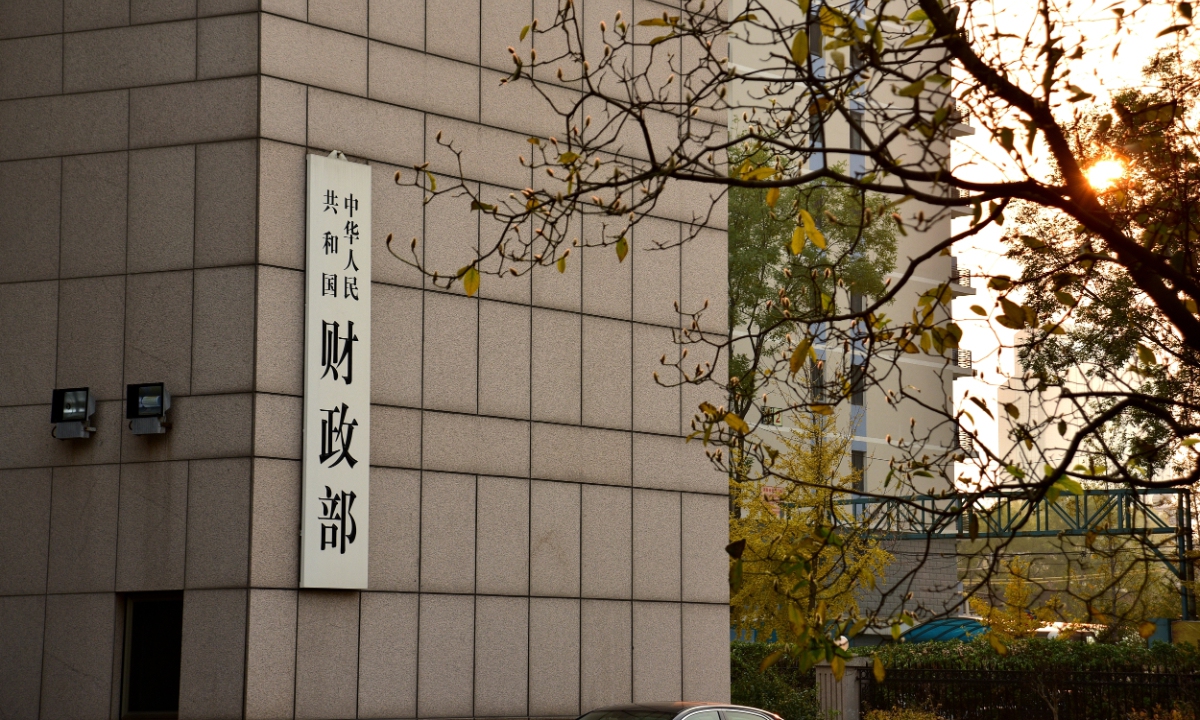
Ministry of Finance Photo: VCG
The
mk size of China's fiscal deficit will increase significantly in 2025, Liao Min, vice minister of finance, told a press conference on Friday.
Liao also noted that the rise in the deficit coupled with the increasing size of China's GDP means that total fiscal expenditure will be further expanded, and counter-cyclical adjustment efforts will be stepped up to provide solid support for sustained recovery of the economy.
Liao added that the increase in the fiscal deficit ratio coupled with the multiplier effect of fiscal policy will allow for more bank credit and social capital investment, thereby promoting an increase in effective demand. In addition, there will be more funding to support employment and consumption, as well as scientific and technological innovation, thus promoting economic structural adjustment and a solid push for high-quality development.
There remains considerable room for China's central finance to issue debts and expand deficit. The country's economy still has high growth potential in the medium to long term, the vice minister noted.
The government's debt ratio is significantly lower than that of other major economies and emerging markets, making China's fiscal situation healthy and sustainable. Moreover, the government debt is backed by a large amount of high-quality assets that have both social and economic benefits. Additionally, the real interest rate on Chinese government bonds is currently significantly lower than the real growth rate of the country's economy, so issuing government debt is sustainable, Liao said.
Specific policy measures must go through statutory procedures before being launched, he noted.
"The increase in fiscal deficit size is a very important manifestation of the implementation of a more proactive fiscal policy," Li Chang'an, a professor at the University of International Business and Economics in Beijing, told the Global Times on Friday.
Li noted that taking the actual conditions of national development into consideration, fiscal policy will play a more significant role this year in stabilizing the country's economic growth, combined with monetary policy and other support policies.
Facing new situations and problems in internal and international environments, the country's fiscal policy has ample tools and room for maneuver, Liao said.
Liao noted that the ministry will arrange for a larger scale of government bonds to provide more support for stabilizing growth. It will also expand the scale of ultra-long-term special national bonds to further implement equipment upgrades and consumer goods trade-in programs.
In addition, the ministry will raise the quota for new local government special-purpose bonds, in order to expand effective investment. It will also issue special treasury bonds to support large state-owned commercial banks in replenishing core tier-1 capital, enhancing their ability to lend to the real economy and support the expansion of effective demand and economic structural adjustment, the vice minister noted.
The ministry will optimize the structure of fiscal expenditure and strengthen support for key areas, including pensions, consumption and new quality productive forces, Liao said.
Wang Peng, an associate research fellow at the Beijing Academy of Social Sciences, told the Global Times on Friday that boosting demand and expanding consumption will be priorities in the country's fiscal policy this year.
"Increasing employment and people's income through multiple channels will enhance real consumption capacity, and supporting the development of a number of new industries such as elderly services and cultural tourism will foster more and newer consumer industries and consumer scenarios," Wang said.
Wang noted that the country's fiscal policy will continue to exert efforts to prevent and defuse risks in key areas, such as local government hidden debts and problems in the real estate market.
Li added that thanks to increasing support for technological innovation and green and low-carbon activity, new quality productive forces will play a leading role in driving the new momentum of economic development, thereby promoting the optimization and upgrading of the economic structure.

